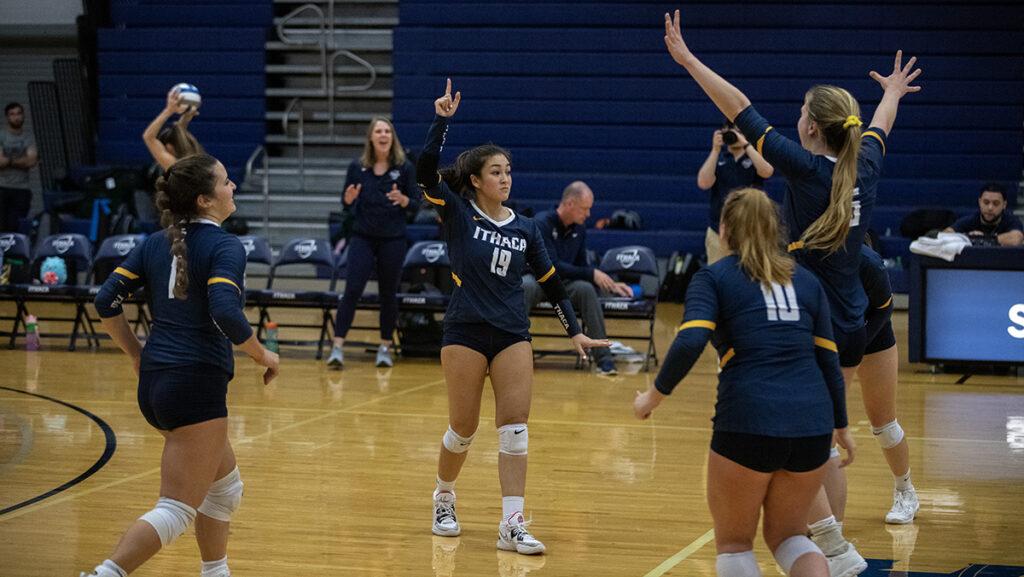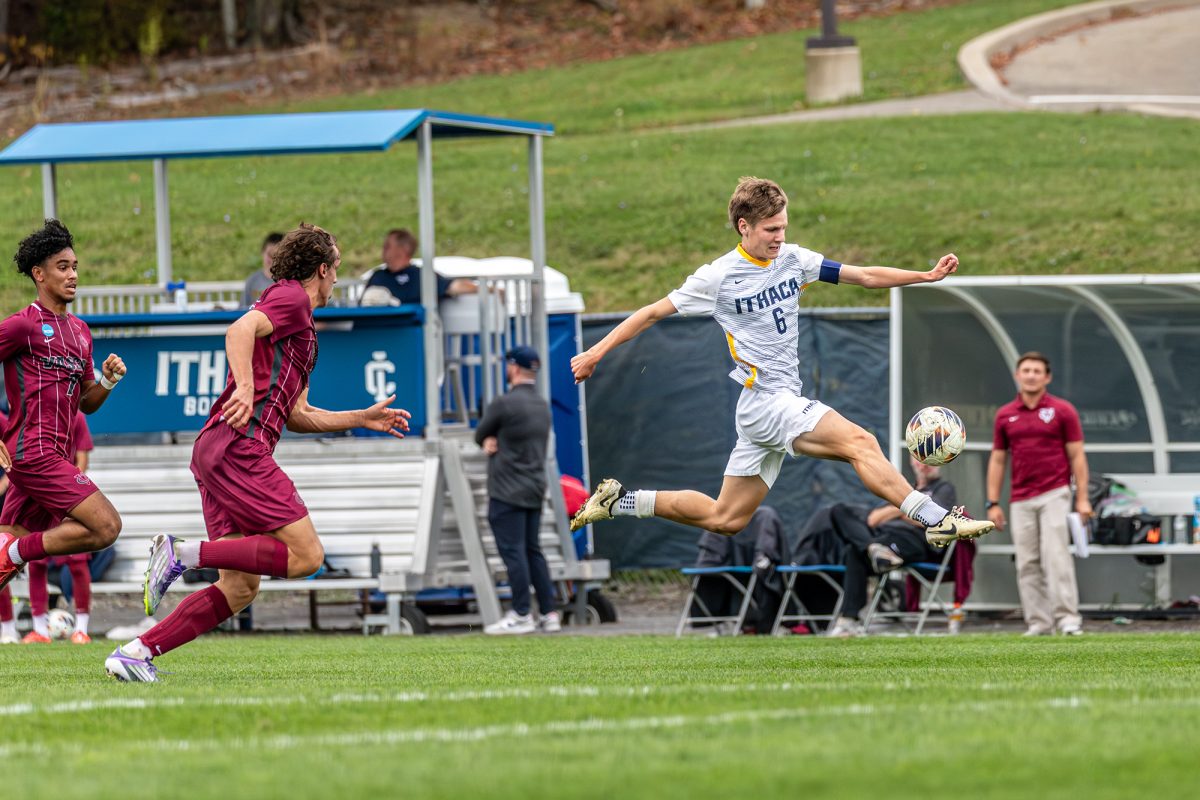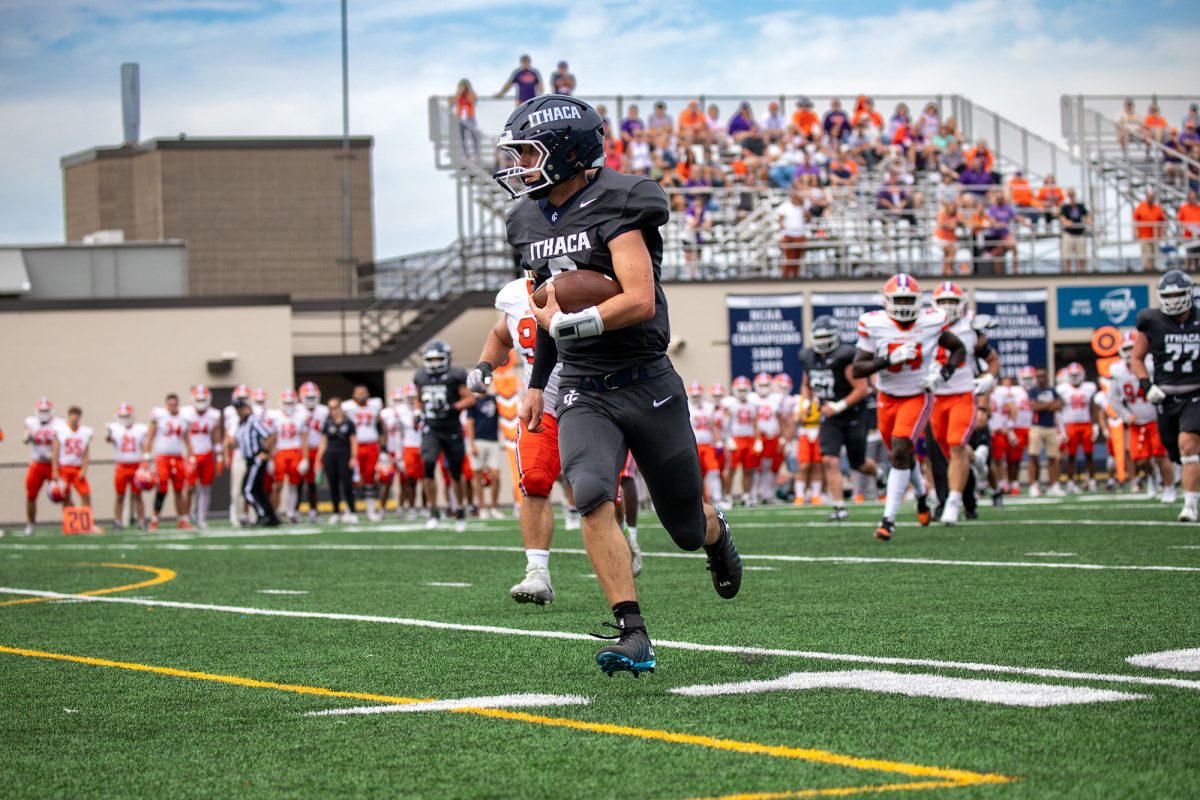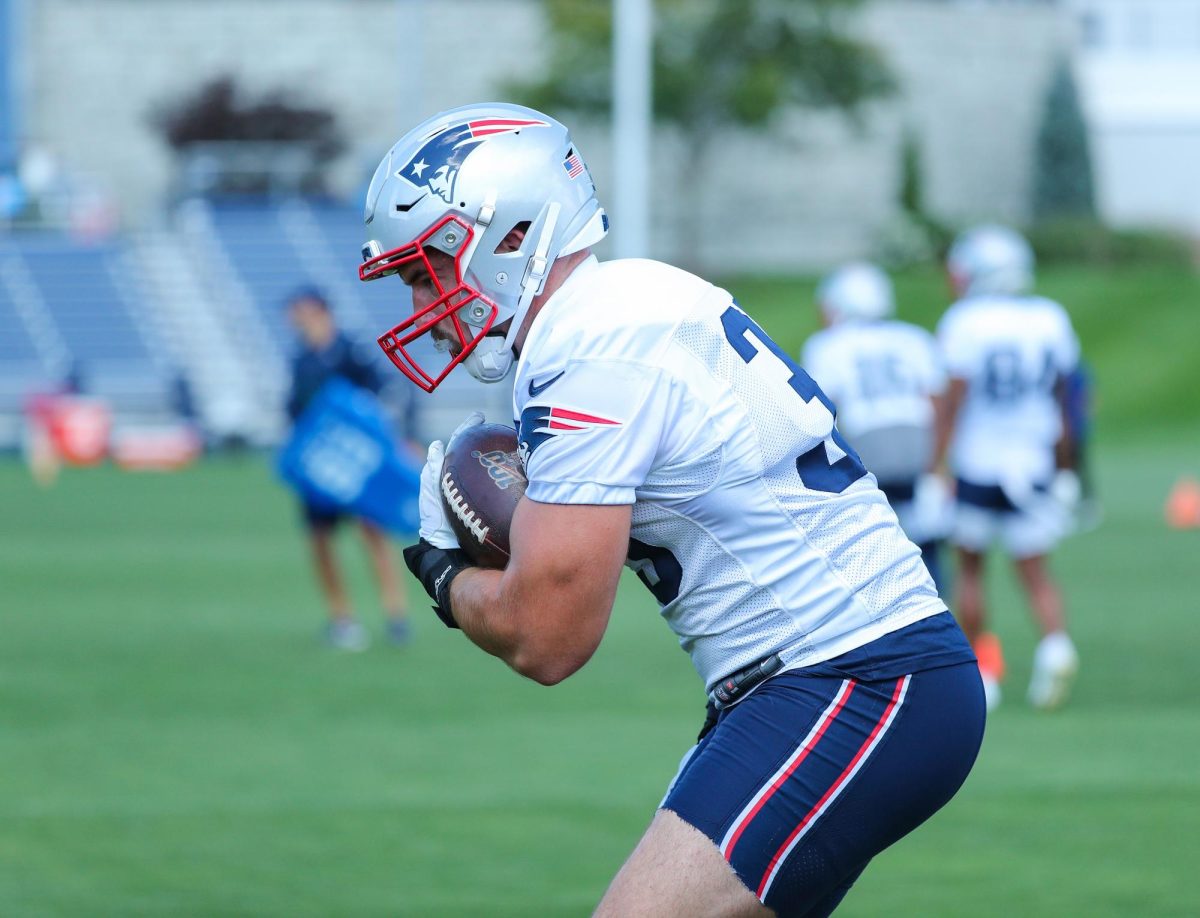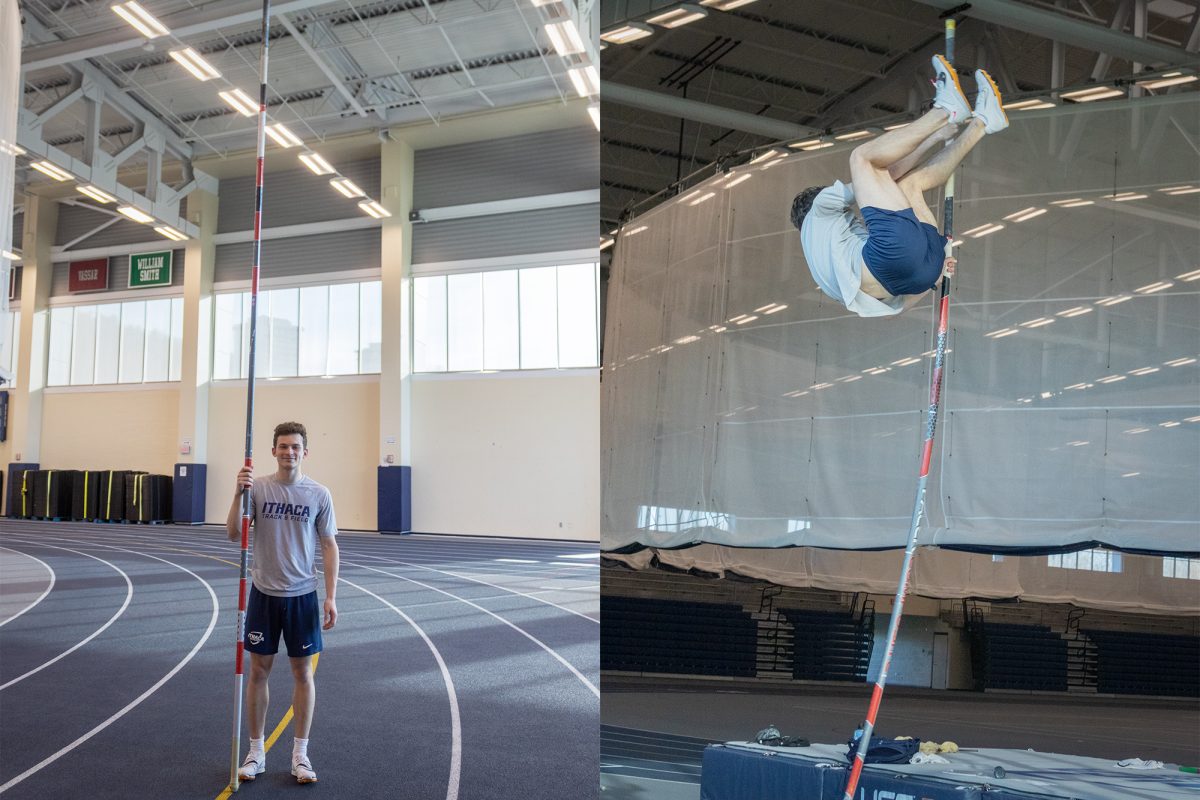When the clock hit zero in the Ithaca College women’s basketball team’s 78–46 win over the Rochester Institute of Technology on Feb. 7, an unmistakable keyboard riff blared out over the speakers before Daryl Hall began the first line of the Hall & Oates hit song, “You Make My Dreams (Come True).”
The same thing happened at the men’s basketball team’s victory over RIT later that night, during the football team’s Cortaca Jug victory at Yankee Stadium on Nov. 12 and the volleyball team’s win against SUNY Geneseo on Sept. 3. In fact, the same could be said about every home Bomber victory since 2015.
While “You Make My Dreams (Come True)” is far from a traditional victory song, Will Rothermel, former associate director of Athletics, said the energetic intro made it the perfect celebration song.
“Andy [Davenport, former facilities and operations assistant,] mentioned the song and we listened to it,” Rothermel said. “And we were like, ‘This is perfect.’ It’s timeless, it’s upbeat, it’s fun and you can see people dancing to it after we win games.”
Although the song never talks about winning or competing, Davenport said he liked the song because it talked about making dreams come true, something athletes do every time they win.
“Only the athletes can know the blood, sweat and tears that go into [games] … [but] I wanted the kids to be able to show up to the game and just be able to play,” Davenport said. “Being able to have a fun song with just the opening couple of notes of that song, it’s just such a fun little beat that makes you want to wiggle your hips.”
Davenport said the perfect example of the impact the song can have on the teams happened just a few weeks into the first season of the tradition. He said the women’s soccer team had just finished a game, but because the press box was understaffed, it took a little bit for the song to start.
“I’m walking off the sideline and [head women’s soccer coach] Mindy Quigg … is standing next to me and she’s like, ‘Where’s my victory song?’” Davenport said. “It had been maybe a minute, and she wanted it right away. … And it was like, we’re a week or two in and this clearly means something to her.”
Senior Jack Stern, who is on the men’s basketball team, said that having one song for every team helps build camaraderie between the sports and provides common ground for players in different sports and seasons.
“Since I’ve been recruited here, through all my four years playing here, one thing that, not only Susan Bassett [associate vice president and director of Intercollegiate Athletics] but Will Rothermel and many of the other coaches and head staff have told us, is we’re one team,” Stern said. “This is just another one of those things that build on that and show that this isn’t just something that we say. We do what we preach.”
Rothermel said that bringing together the teams is the goal of every department-wide decision like this one.
“It puts another dimension of connectivity between the teams besides wearing the same uniforms and gear,” Rothermel said. “It’s a different representation of the cohesion and unity of the department.”
As for bringing the department together, junior Jamie Koopman, who is on the volleyball team, said she was never told it was the “victory song,” but has noticed it at her games and others.
“We kind of don’t really talk about that stuff,” Koopman said. “The fact that that song plays after all the songs every game, you just kind of expect it. … I just kind of assumed it was an Ithaca thing.”
Stern said it was the perfect song for a postgame celebration, which is why he and his teammates always anticipate it when the clock winds down in a game that looks like a win.
“On the bench, I hear guys all the time saying … ‘Hey, play that song!’” Stern said. “When we hear it, I know everyone gets that extra tingly feeling, like, ‘Yeah, that was a great win.’”
While Rothermel said athletes were polled on the victory song when it was originally being implemented, all of the student-athletes at the college have graduated or moved on since then, meaning no athlete at the college has had a say in the song. However, he said that is what has given the tradition its staying power.
“This is what we’ve done, and it’s a positive thing,” Rothermel said. “People get used to it and then it’s cool because you hear it at your game when you win. And you go to a basketball game in the winter and a lacrosse game in the spring, and you’re all hearing the same songs.”
Davenport said he did not know the song was still being used by the college eight years later, but even though he left the college in December 2015, he was happy to hear he still had a little bit of a lasting impact on the Bombers.
“I was a big believer in athletics and all the positives that can come through lessons you learn on the field,” Davenport said. “So, to know that I still in some very small way am playing a part in the success of their athletics is a cool feeling.”


